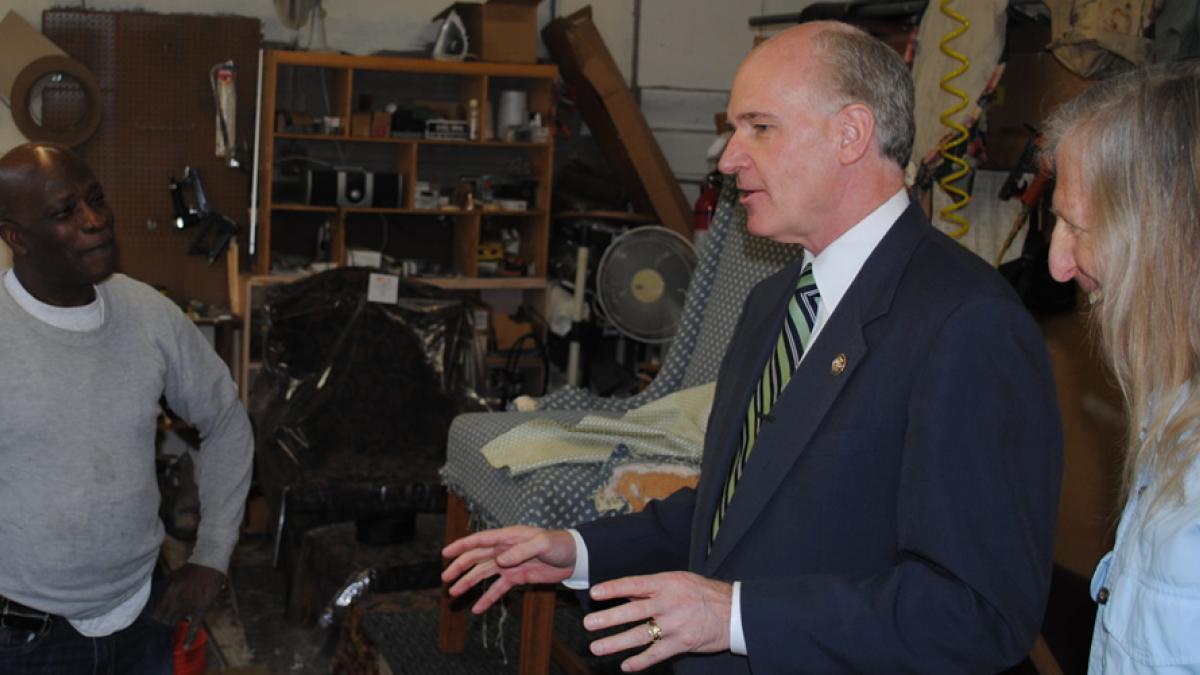SMALL BUSINESSES

Since coming to Congress, Bill has continuously fought for men and women engaged in traditional and emerging industries throughout Massachusetts.
The Ninth Congressional District is home to the continental United States’ highest grossing commercial fishing port, New Bedford, and the historic fishing communities of the South Shore, Cape Cod, and Islands. Bill has been proud to support the remaining small and family-owned businesses that call Southeastern Massachusetts home. After pushing the Obama Administration to issue a disaster declaration for the Northeast multispecies groundfish fishery in September 2012, Bill secured $75 million in disaster assistance for fishing communities across the country, with the largest share - $26 million – going to Massachusetts. The Commonwealth accounts for approximately 90% of all groundfish landings in New England.
Massachusetts is also home to one of the largest cranberry industries in the country. As the founder of the bipartisan and bicameral Cranberry Caucus, Bill had sought to protect cranberry growers and expand market access. To assist local farmers, Bill has repeatedly secured purchases of surplus cranberries and cranberry products by the US Department of Agriculture (USDA), including $28 million for surplus cranberry crops to benefit low-income families. He has also worked to promote the industry’s entrance into new markets by using his position on the Foreign Affairs Committee to promote the product in the European Union and Turkey, where cranberries face high excise taxes. Bill recently directed thousands of dollars of USDA Specialty Block Grant funding for projects in Massachusetts, including a partnership with the U.S. Cranberry Marketing Committee, Cape Cod Cranberry Growers Association, and the Massachusetts Office of Travel and Tourism to increase demand for cranberries abroad. In total, through his efforts to reauthorize the US Export-Import Bank and his promotion of the cranberry industry, Bill has brought in well over $25 million to this local industry.
With an eye on emerging industries, Bill has successfully fought to preserve merit-based funding in the Small Business Innovation Research (SBIR) program. Massachusetts is second only to California in the number of SBIR grants and total dollar value of the awards, so protecting these grants is imperative to aiding our local businesses; ensuring their continued investments in research and development; and strengthening and modernizing our regional economy.
Further, a critical issue facing small business owners in our district is the challenges posed by seasonal industries, such as tourism. Many employers, particularly in the hospitality and service industries, rely on trusted and trained seasonal employees. Bill remains a staunch advocate for the seasonal workforce employed across Southeastern Massachusetts. In order to prioritize returning seasonal workers, he introduced the Save Our Small and Seasonal Businesses Act, and he has continually helped small businesses navigate the federal sponsorship process and mitigate processing delays.
Bill is balanced in his support for comprehensive healthcare coverage and his understanding of the need for small businesses to adjust to the transition from the Massachusetts system to the federal system. He worked to grant small businesses in Massachusetts a much-needed grace period to comply with the insurance market rating rules under the Patient Protection and Affordable Care Act (ACA). This one year extension allowed for a concise and accurate evaluation of rating factors affecting small business insurance rates. This example is only one of many where Bill crossed the aisle to help clarify or tighten provisions within the ACA for small business owners. He voted for the successful repeal of onerous 1099 forms for small businesses on all purchases of goods and services over $600 annually, and he has consistently voted to repeal the medical device tax while offering alternatives, like closing loopholes for Big Oil, to help pay for the much-needed health care services provided in the ACA.